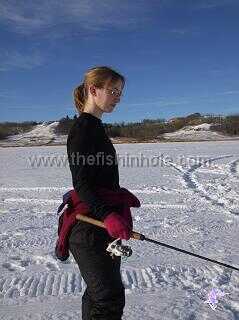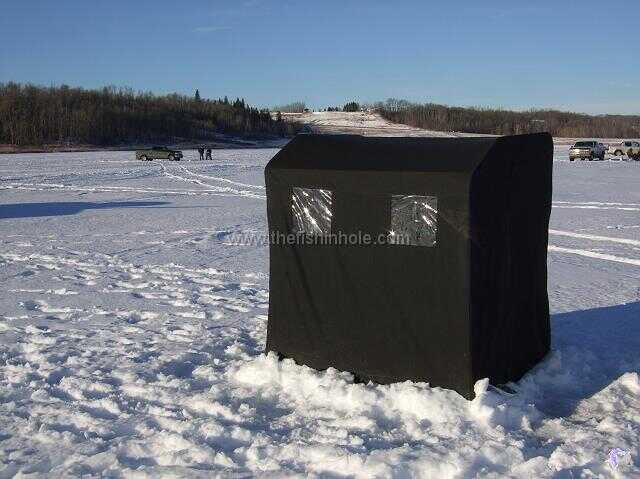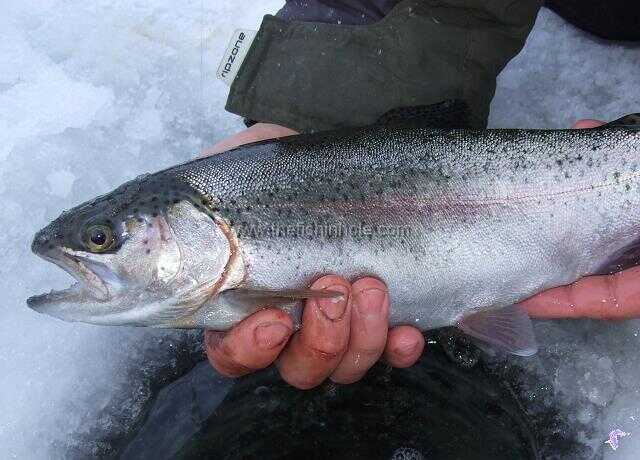Ice Fishing Rods
While I like ice fishing rods being small and compact I think the fact that so many of us are using them for all hard water applications we’re actually handicapping our ability to land fish. Think of the reverse situation and the picture will become clear. How often have you seen someone using an ice fishing rod in the middle of summer to jig up a walleye? The answer is very likely never and the answer is pretty simple. The longer rod gives us more control when fighting fish and when it comes to ice fishing, the same holds true. The longer rod helps control and land more fish. That’s why I will often use my regular summer rods when I hit the ice.
That being said, the ice fishing rod definitely has its purpose. When it’s cold out a lot of fishing is done within the confines of a shelter and this is where the ice fishing rod shines. It’s compact enough to fish within the shelter while still giving us some flex to help fight and land fish.




The Set Line
While I like jigging when ice fishing I have to admit that a huge number of the fish I catch are caught without my hands on the rod. A still fished bait or, and here’s a real secret, a still fished fly, has outfished my jigging efforts more times than I would count. In line with the ‘less is more’ theory, the ‘do nothing’ set-up does it all. It fishes continuously, it doesn’t jerk or jiggle or dart in any way that may spook a fish and it gives fish as much time as they need to make up their mind to bite or not. I’ve suspended small nymph flies a foot or two under the ice and had amazing results on both trout and whitefish. Likewise, a still fished one eighth ounce jig tipped with a minnow placed a few inches off bottom has been more than most Pigeon Lake walleye could stand – particularly with 4 pound test line.


Plugging for Trout
My friend Aaron Torrington put me onto this many years ago. He figured that if plugs worked so well for trout through the summer, how come we don’t jig with them in the winter. So, he stuck a split shot on the nose of a floating rainbow Rapala and dropped it down in 15 feet of water. He gave the line some sharp jigs and inside of two minutes his rod was bent double. This marked the start of something special. It seems that big trout will go out of their way to hammer a minnow and some of the rules don’t apply. I can get away with slightly heavier line and more action. Fish will make more allowances to strike when they figure they’re getting a big meal. The trick with winter plug fishing is to try to tire the trout out before it gets to the hole. It’s trickier than it sounds and some patience is required. The goal is to be able to pull the trout up the ice fishing hole in one smooth motion. If the fish struggles, a free point on an exposed treble all too often catches the edge of the ice and its game over.


So there you have it – a few tips that may modify your approach to ice fishing. While they may help us land more fish, I can tell you that if all I had was a spool of line and a hook in my pocket, I’d still be happier than a clam. It’s the getting out, which for me is always the best thing.

